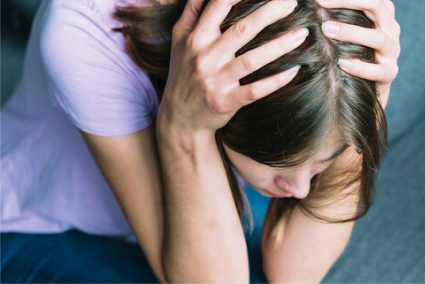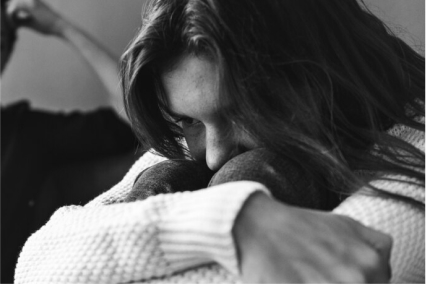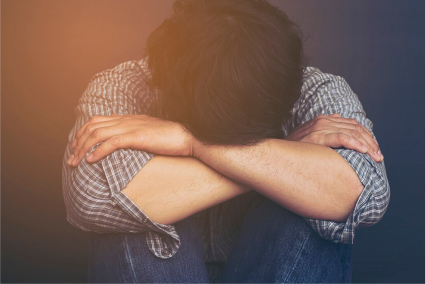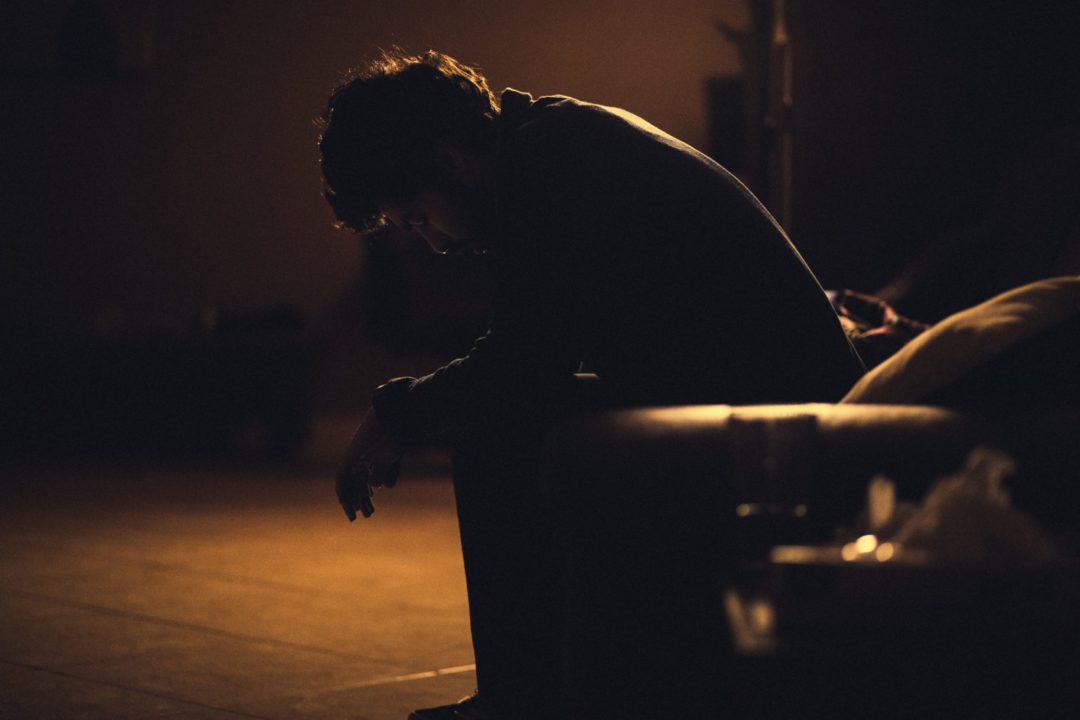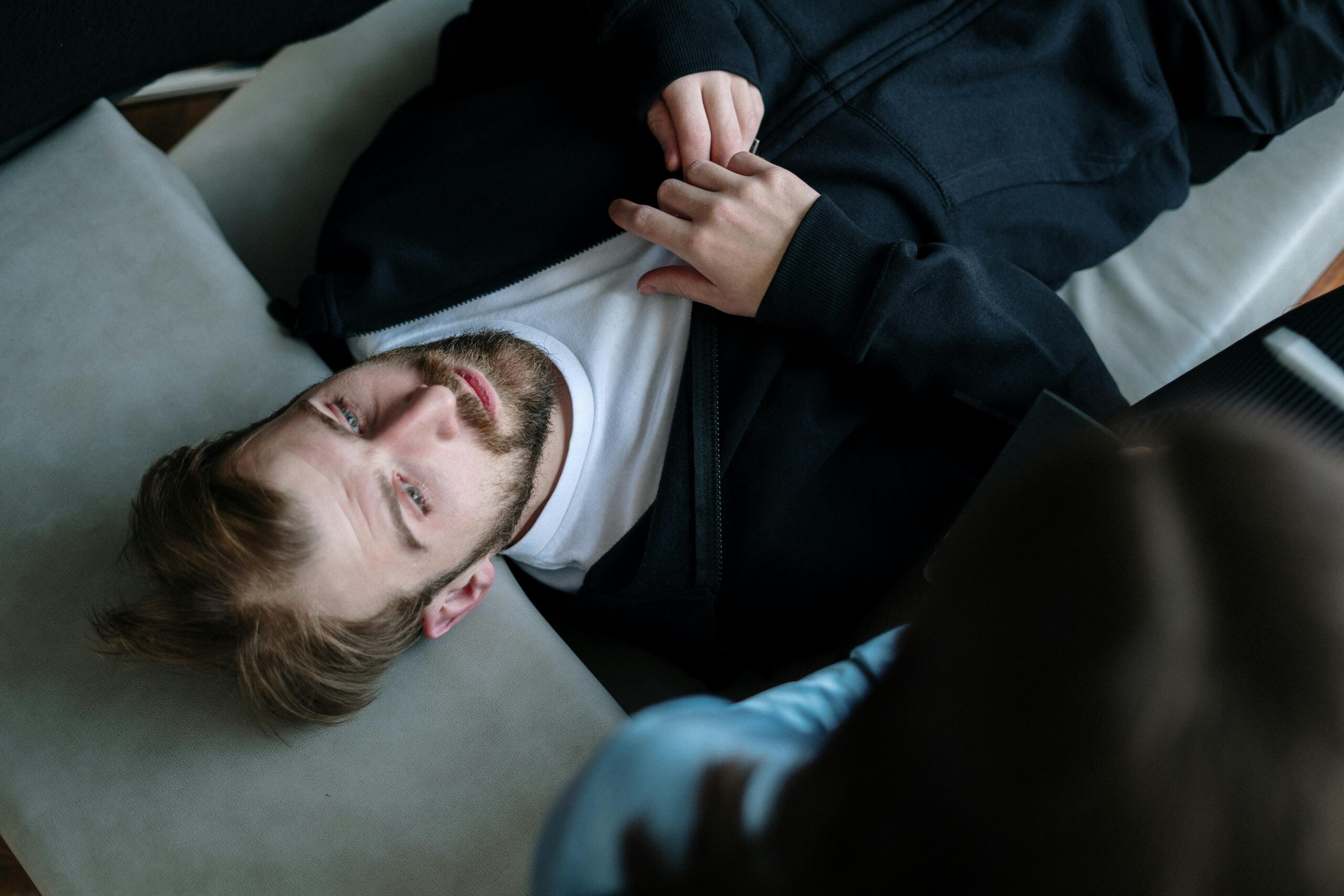Is there an upcoming social event you need to attend? Are you anxious only thinking about it? Maybe you are not just shy. It might be a sign that you are suffering from a medical condition like social anxiety or social phobia. What are these exactly? We Level Up Palm Beach FL will make a thorough social phobia vs social anxiety comparison and help you understand where you are standing. Explore the similarities and differences between social phobia and social anxiety and learn what you can do to make a change and get more joy from life.
Skip to:
What is Social Anxiety?
Social anxiety does not mean just being awkward when in social settings. It is a mental health condition. A person with social anxiety has an intense fear or anxiety in social situations. This fear comes from the worry that people will judge you, you will be embarrassed and even rejected by everyone. If you are dealing with this condition, your everyday life might be overwhelming at times.

How do you know whether you have it? If you do, you:
- Fear talking to strangers, meeting new people, or attending parties
- Start sweating, trembling, have a fast heartbeat, or feel dizzy in social gatherings
- Avoid situations where you have to interact with people
- Feel like everybody is watching you or fear that you will say or do something embarrassing
How Does it Affect Your Daily Life?
Social anxiety will affect your work or school. Due to your anxiety, you might avoid participating in meetings or classes. In addition, when you avoid social events, it is hard to form or maintain friendships. Also, when you constantly worry and fear, you will feel less confident. All this will reduce the quality of your life. It will keep you from doing things you enjoy, and you won’t try new activities.
Get Help. Feel Better. Break-Free.
Premier Accredited Dual Diagnosis Mental Health Centers Near You
No matter past therapy challenges, our dedicated therapists provide unwavering support. Our compassionate behavioral health specialists are committed to standing by your side through it all. When you are prepared to take the next step or want guidance on counseling to transform your life, reach out. We will help guide you to the resources you need for support. There is no pressure or obligation. Call our confidential hotline today.
FREE 24/7 Dual Diagnosis Mental Health Therapy HelplineWhat is Social Phobia?
Social phobia is also known as social anxiety disorder and it is a severe form of social anxiety. If you have social phobia, you have a very strong and persistent fear of social situations. This fear is often irrational, and it interferes with your daily life. It is not only shyness or nervousness: it is a chronic mental health condition that requires attention and professional treatment.
If you have social phobia, you:
- Excessively worry about being scrutinized or criticized by others
- Avoid parties, public speaking, or even everyday activities like eating in front of others
- Sweat severely, shake, blush, get nauseous, or have trouble speaking when you need to make social contact
- Get overwhelmingly anxious just thinking about upcoming social events

Comparing Social Phobia vs Social Anxiety
Both social phobia and social anxiety involve fear of social situations. However, they differ in intensity and impact. To start with, if you have social anxiety, your fear and discomfort are present but can be managed to some extent. You might feel nervous, but you can still participate in social situations. On the other hand, if you have a social phobia, your fear will prevent you from socializing and social activities altogether.
Similarly, with social anxiety, your daily activities will feel uncomfortable. However, you can often still function. You may struggle in specific situations like public speaking. But, with social phobia, you will have a hard time going to work, attending school, and maintaining relationships. Social phobia will make you unable to function in your daily life.
Social Anxiety vs Social Phobia: Key Similarities and Differences
When talking about social anxiety vs social phobia, we need to look at their similarities first. They are:
- Both conditions involve a fear of social situations.
- Both can lead to physical symptoms like sweating and shaking.
- Both can cause avoidance behavior and impact quality of life.
There are differences as well when looking at social anxiety vs phobia. Some of them are:
- Social phobia is generally more severe than social anxiety.
- Avoidance behaviors are more pervasive in social phobia.
- Social phobia has a more significant impact on daily life.
- Physical symptoms are more intense in social phobia.
Interchangeability of Terms and Its Implications
The terms “social phobia” and “social anxiety” are often used interchangeably, but this can be misleading. How? It may lead to underestimating just how severe social phobia is. It can cause confusion about the level of distress people with this condition have.
Knowing about social anxiety disorder vs social phobia is also important because of treatment. Social phobia often requires more intensive treatment, including therapy and medication. Also, clear distinction helps in better understanding and providing appropriate support. It ensures that you receive the right diagnosis and treatment for your specific condition.

Social Anxiety Disorder vs Social Phobia
Social anxiety disorder is classified as an anxiety disorder. It is listed in the Diagnostic and Statistical Manual of Mental Disorders (DSM-5), which is used by mental health professionals for diagnosis. SAD includes persistent fear or anxiety in social situations, avoidance of these situations, and physical symptoms like sweating, trembling, or nausea. To be diagnosed with SAD, the fear or anxiety must be out of proportion to the situation and last for six months or longer. It must also interfere significantly with daily life.
Social Anxiety Disorder and Social Phobia are both terms that describe the same mental health disorder. The main difference lies in the terminology used by professionals and in literature. While both terms refer to the same condition, the use of “social phobia” can sometimes emphasize the intense fear aspect of the disorder. “Social Anxiety Disorder” is the more commonly used term in medical and clinical settings.

Conquer Emotional Pain. Find Peace, Purpose & Happiness.
Experiencing depression, anxiety, or grappling with mental health challenges? Get compassionate and effective dual diagnosis therapy from our caring counselors in a safe and comfortable environment. Take the first step towards your recovery today.
Hotline (888) 680-7311Misconceptions and Distinctions
Misconceptions about SAD and social phobia can lead to confusion.
Misconception 1: Social phobia is a different or more severe condition than SAD. To clarify, both terms describe the same condition. The severity can vary among individuals, but the underlying disorder is the same.
Misconception 2: People with SAD are just shy or introverted. That is not true. SAD is much more than shyness. It involves intense fear and anxiety that can interfere with daily life. Introversion is a personality trait, while SAD is a diagnosable mental health condition.
Misconception 3: Avoiding social situations will make SAD go away. Actually, avoidance can make the condition worse. Treatment often involves facing social situations gradually and learning coping strategies.
Social Phobia vs Generalized Anxiety Disorder
Generalized Anxiety Disorder (GAD) is a mental health condition characterized by excessive, uncontrollable worry about various aspects of life. This worry is often disproportionate to the actual situation and can affect daily functioning.
Its symptoms include persistent worry about different events or activities. It is difficult to control this worry. There are physical symptoms such as restlessness, fatigue, difficulty concentrating, muscle tension, and sleep disturbances. To be diagnosed with GAD, these symptoms must last for at least six months and cause a lot of pain or trouble.
Comparison Between Social Phobia and GAD
While GAD affects general anxiety about many facets of life, including health, employment, and daily activities, social phobia creates anxiety particular to social events when you dread being evaluated or shamed. Social phobia triggers include social contacts and events needing performance, such as public speaking or meeting new people. GAD triggers can be any occurrence or activity that makes one anxious, including financial issues or medical ones.
Often resulting in avoidance of social events, social phobia symptoms are severe and situational, including perspiration, shaking, and a rapid heartbeat. More often occurring GAD symptoms include restlessness, tiredness, poor concentration, irritability, muscular tension, and disturbed sleep. While GAD affects a wider spectrum of activities and daily obligations, social phobia mostly influences social interactions.
Is Anxiety Common in Palm Beach County, Florida?
Anxiety disorders are a major issue in Palm Beach County, as shown by the 2019 emergency department data. Anxiety disorder, unspecified, was the top mental health diagnosis, with 2,387 cases reported. Generalized anxiety disorder followed with 432 cases.
Do you suspect you are struggling with an anxiety disorder? Do you know somebody who is? Make a change and seek treatment today.

Treatment Options for Social Anxiety and Social Phobia
Cognitive behavioral therapy is one of the usually used approaches in anxiety disorder treatment. It enables you to spot and modify bad habits and attitudes. It works rather well for social phobia as well as social anxiety. Working with a therapist, you learn coping mechanisms and face your anxieties. Often employed are methods including exposure therapy, in which one progressively faces fearful circumstances.
We also use medications. How do they help? They reduce anxiety symptoms and make it easier to engage in therapy and face social situations.
To get the complete treatment, you will join our holistic treatment in Palm Beach. We use mindfulness practices, including meditation, to help you stay present and reduce anxiety. These practices help you relax and manage stress and anxiety symptoms.
Exercise can bring you many benefits. Regular physical activity can improve your mood and reduce anxiety. Exercise releases endorphins, which are natural stress relievers and can improve overall mental health. When you combine this with a balanced diet, you will improve your mental health significantly. Proper nutrition can affect brain function and mood and help you manage anxiety.
Being around people who are struggling with the same conditions has many advantages. You will get to exchange experiences and stories, get motivation from your peers, and get comfort in knowing that you are a part of a group.
Overcome Your Fears and Enjoy Your Life
Our social phobia vs social anxiety comparison shows you that both of these conditions will impact your daily life and, in the end, your happiness. It is very important to try to understand yourself and be self-aware. Only then will you be able to seek treatment and improve. Not sure about your condition. Reach out to us, do a mental health assessment in Palm Beach, and learn what you can do. We are here to support you and guide you to a quality life.
Improve Your Life
Embark on a free call to our behavioral health program advisors. Explore our dual-diagnosis mental health rehab programs. Each We Level Up treatment center network facility specializes in specific recovery counseling. Call to feel & get better.
- Individualized Care
- Attentive Accountable Team
- First-class Amenities
- Licensed & Accredited
- Recognized 5-Star Network
We’ll Call You
Sources:
Palm Beach County Community Health Assessment Palm Beach County, Florida. (n.d.). Available at: https://palmbeach.floridahealth.gov/programs-and-services/community-health-planning-and-statistics/_documents/Palm-Beach-County-2022-Community-Health-Assessment_FINAL.pdf.
